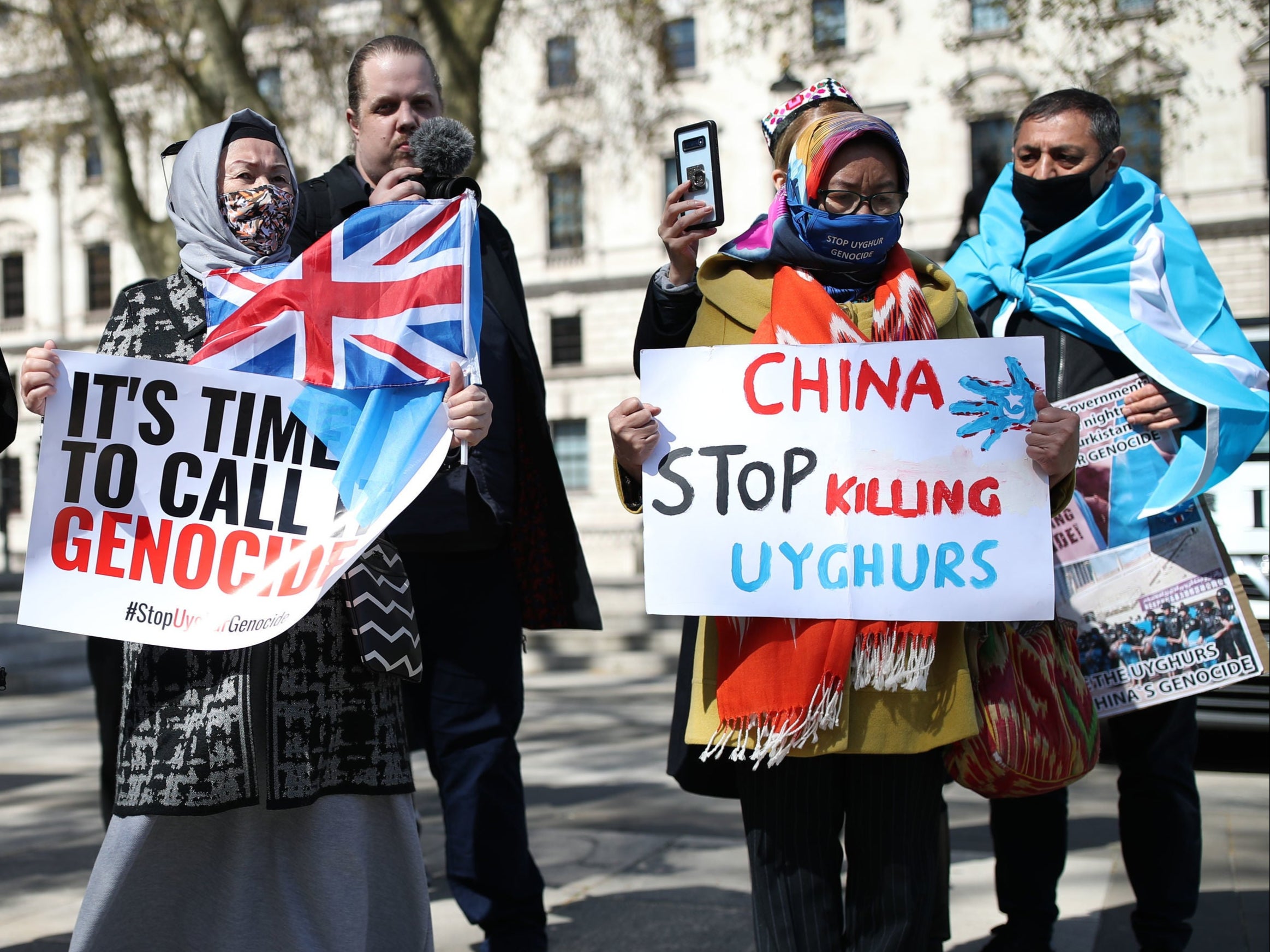China is committing ‘slow genocide’ by stopping millions of Uighur births
Up to 4.5 million Uighur births could be prevented by 2040

China is committing “slow genocide” against the Uighurs by intentionally stopping millions of births through mandatory birth control, a leading expert has said.
In the first peer-review work of its kind, a new study estimates that as many as 4.5 million Uighur births could be prevented by the Chinese Communist Party (CCP) in southern Xinjiang by 2040.
Adrian Zenz, an independent China researcher, reached this estimate after studying the region’s birth rate and looking at China’s “population optimization” policies which target ethnic minorities.
While birth rates have fallen sharply in Xinjiang in recent years as a result of forced sterilisation and IUD-fittings, measures like forced labour transfers have further reduced population growth.
These are just two aspects of the larger crackdown against the Uighurs, which has seen more than a million people rounded up since 2017 and transported to internment camps on the CCP’s pretext of fighting terrorism.
As part of his latest findings, Mr Zenz, senior fellow in China studies at Victims of Communism Memorial Foundation, predicted the Uighur population in southern Xinjiang is likely to be between 8.6 and 10.5 million in 2040, roughly the same as it is now.
This is significantly lower than the 13.4 million projected by Chinese academics before their country imposed birth control policies on Uighurs and other ethnic minorities.
China has rejected the genocide claims, describing Mr Zenz’s research as “as good as useless” and “not credible.” Beijing maintains its policies in Xinjiang are aimed at fighting extremism and relieving poverty.
In his research, Mr Zenz also cites statements made by party academics and officials between 2014 and 2020, which show China’s aim of diluting the Uighur population, a decision it alleges is in its national security interests.
To this end, the central government tasked the region’s communist party in 2017 with increasing the settler Han population, in Xinjiang by 300,000 by 2022.
Although the “embedding” of substantial Han Chinese populations into largely Uighur areas helps to lower the density of ethnic minority groups, it alone is not sufficient, according to Chinese researchers in Xinjiang.
Li Xiaoxia, director of the Institute of Sociology at the Xinjiang Academy of Social Sciences, has publicly said that birth control is the best solution for the “problem of the rapid growth of the minority population”, which she blames for fostering extremism.
Similarly, Liu Yilei, deputy secretary-general of Xinjiang’s Production and Construction Corps (XPCC)’s party committee, told a symposium in July 2020 that progress and stability in the region could only be achieved by lowering the percentage of Uighurs there.
“The proportion of the Han population in southern Xinjiang is too low, less than 15 per cent. The problem of demographic imbalance is southern Xinjiang’s core issue,” he said.
Mr Zenz argues that such comments, when combined with the demographic trends caused by China’s repression in Xinjiang, demonstrate the CCP’s genocidal intent against the Uighurs.
“A very strong case can be made for a slow genocide over time,” he told The Independent last month in an interview about his latest research.
“The destruction of a group does not need to happen with mass killing,” he added. This view is in line with the 1948 Convention on the Prevention and Punishment of the Crime of Genocide, which lists birth prevention as a possible definition of genocide.
Mr Zenz’s latest research, which he presented to the Uighur Tribunal on Monday, will be published in the Central Asian Survey journal.
The Uighur Tribunal was set up to assess allegations of genocide made against China, since the international courts will not hear a case against it. Following two sets of hearings in June and September, it will deliver its verdict, which is not legally-binding, in early 2022.
In late April, the UK followed the lead of countries like the US and Canada by declaring that genocide is being committed against the Uighurs in Xinjiang.
Join our commenting forum
Join thought-provoking conversations, follow other Independent readers and see their replies
Comments